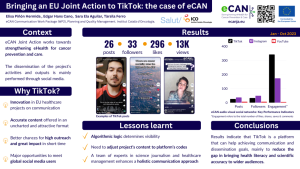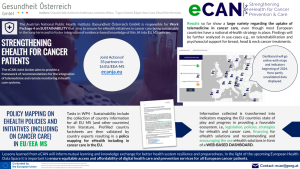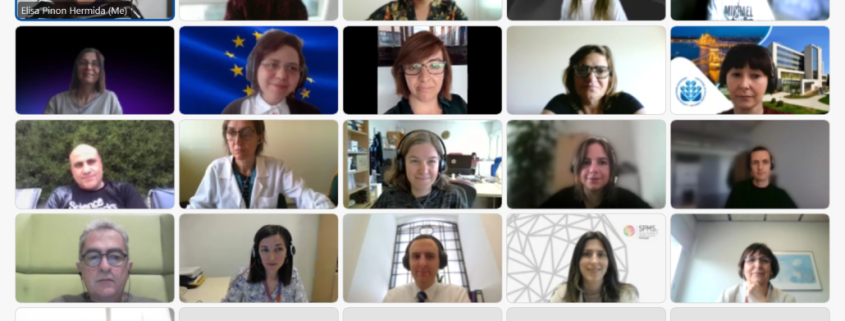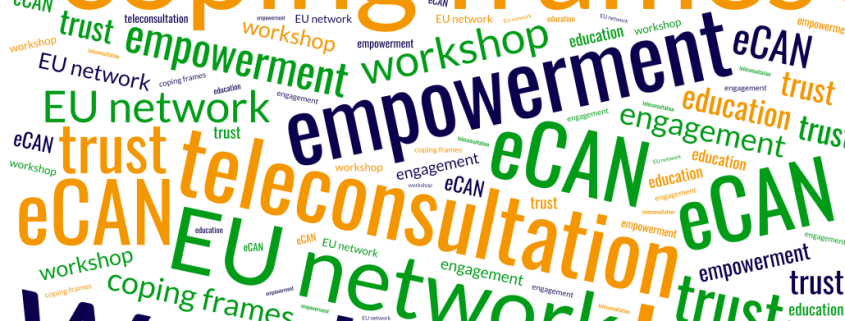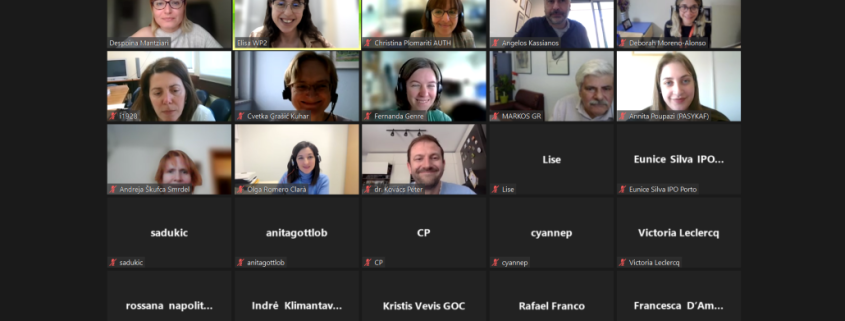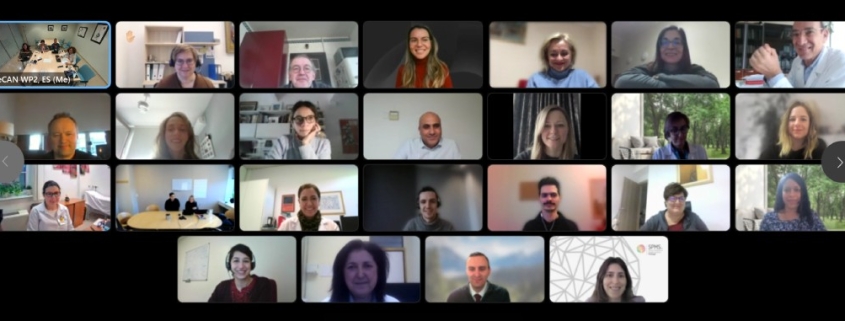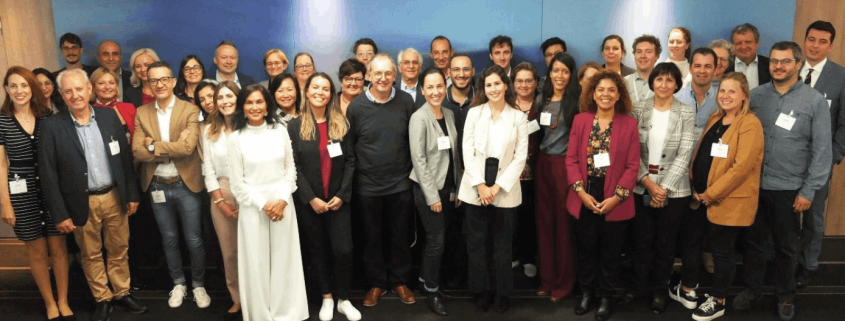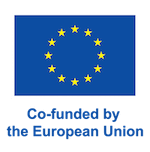The European Public Health Conference (EPH) 2023 has provided an opportunity to bring together some of the eCAN Work Package (WP) leaders. In particular, WP2 (Communication) and WP4 (Sustainability) have presented posters reflecting on the progress of the Joint Action, each focusing on their respective areas.
On the one hand, Elisa Piñón and Edgar Hans from WP2, led by the Institut Català d’Oncologia (ICO), have displayed their poster entitled “Bringing an EU Joint Action to TikTok: the case of eCAN“. The banner explains the communication team’s decision to use this social network, among others, to communicate the progress and outcomes of the European project. It also provides some preliminary results on the performance of TikTok in terms of followers, posts and engagement.
On the other hand, Claudia Habl, a member of WP4 led by Gesundheit Österreich GmbH (GÖG), also presented her team’s poster entitled “JA eCAN roadmap towards a sustainable implementation of eHealth initiatives in cancer care“. It describes the process of collecting information on EU Member States through expert-validated national factsheets, which will lead to map eHealth and cancer care policies across Europe.
TikTok as a tool for science communication
Elisa Piñón, lead author of the WP2 poster, argues that “so far, TikTok has shown higher engagement rates than other audio-visual social media, such as Instagram and YouTube, despite having lower number of posts and followers”.
“It is not common for European projects to choose TikTok as one of their outreach tools”, says Edgar Hans, also author of the WP2 poster. “However, there are good examples of science communication on this platform, it allows us to reach different audiences and promote our creativity when talking about eCAN. We believe it is worth a try”, he concludes.
According to the authors of the poster, the Chinese social network has several strengths. These include the opportunity to innovate in the communication of European health projects, with unexplored and attractive formats, or a greater likelihood of achieving a large reach and impact in a short time.
Showcasing eHealth policies and initiatives across Europe
The WP4 poster also includes contributions from members of WP1 (Coordination) and WP2. By collecting data from EU/EEA Member States, the Sustainability WP aims to provide an overview of European eHealth policies and initiatives with a focus on cancer. The project website will display the validated information in a dashboard with maps and indicators during next year.
Looking in detail at the data collected so far, preliminary results show a wide variation in the use of telemedicine in cancer care, despite the fact that most EU countries have a national eHealth strategy in place. The results will be further analysed in practical cases and situations, including telerehabilitation and psychosocial support in breast and head & neck cancer treatment.
EPH’s flagship theme, One Health
Since 1992, the European Public Health Association (EUPHA) has organised the EPH Conference, the biggest annual public health event in Europe bringing together research, practice, policy and education. The 16th edition, that has been held in Dublin between the 8th and the 11th of November with more than 2,450 delegates worldwide, has addressed diverse topics related to the concept One Health.
This term, according to the World Health Organization (WHO), refers to an integrated, unifying approach that aims to sustainably balance and optimise the health of people, animals and ecosystems. It recognises that the health of humans, domestic and wild animals, plants, and the wider environment (including ecosystems) are closely linked and interdependent.
The theme of the forthcoming 17th European Public Health Conference 2024, to be held in Lisbon, Portugal, will be “Sailing the Waves of European Public Health: Exploring a Sea of Innovation”.
References:
E P Hermida, E Hans Cano, S Ela Aguilar, T Ferro, Bringing an EU Joint Action to TikTok: the case of eCAN, European Journal of Public Health, Volume 33, Issue Supplement_2, October 2023, ckad160.1205
C Habl, K Habimana, J Weiss, T Schmitt, E Hans Cano, E P Hermida, JA eCAN roadmap towards a sustainable implementation of eHealth initiatives in cancer care, European Journal of Public Health, Volume 33, Issue Supplement_2, October 2023, ckad160.1205
![]() Co-funded by the European Union. Views and opinions expressed are however those of the author(s) only and do not necessarily reflect those of the European Union or HaDEA. Neither the European Union nor the granting authority can be held responsible for them.
Co-funded by the European Union. Views and opinions expressed are however those of the author(s) only and do not necessarily reflect those of the European Union or HaDEA. Neither the European Union nor the granting authority can be held responsible for them.
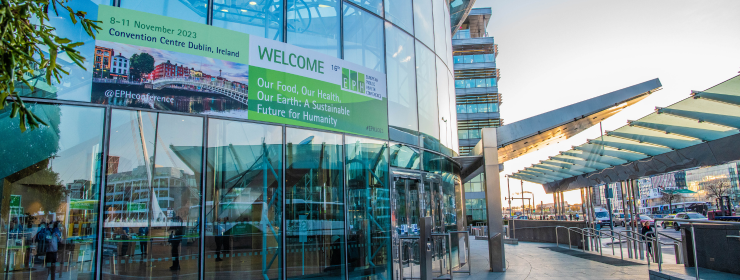 The Photo Project
The Photo Project